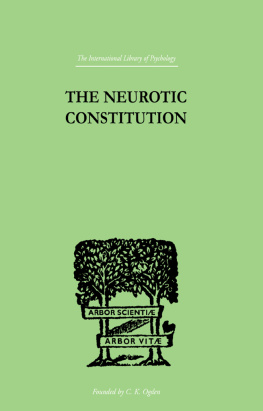First published in 1986 by KP I Limited
This edition published 2015 by Routledge
2 Park Square, Milton Park Abingdon, Oxon OX14 4RN
711 Third Avenue New York, NY 10017
Routledge is an imprint of the Taylor & Francis Group, an informa business
Set in 10 on 12 point Times by Fontwise
African Studies Centre, Leiden 1986
No part of this book may be reproduced in any form without permission from the publisher, except for the quotation of brief passages in criticism
Library of Congress Cataloging in Publication Data
Konings, Piet.
The state and rural class formation in Ghana.
Bibliography: p.
Includes index.
1. Social classes--Ghana. 2. Ghana-Rural conditions. 3. Agriculture and
state--Ghana. 4. Cocoa trade--Ghana. 5. Rice trade--Ghana. I. Ravell, James J.
II. Title.
HN832.Z9S65 1986 305.509667 8528109
British Library CIP Data also available
ISBN 13: 978-0-7103-0117-8 (hbk)
This book could not have been completed without the generous contribution of a number of persons who not only provided basic information but also assisted me in various ways in preparing and carrying out my research and in improving the text.
It is not possible for me to mention by name all the people in Ghana who helped to make this study possible, but the evidence of the trust and co-operation of a substantial section of the rural population can be found throughout the book. I would, however, like to single out a few individuals to whom I owe an especial debt of gratitude: my research assistants, Alphonsus Abavari, Ninfaah Sapato, Martin Akannuemenema, and Thomas Owusuansah; Freek Schiphorst, at the time a post-graduate student at the University of Amsterdam, who made an in-depth study of Zaare, one of the villages affected by the Vea Irrigation Project, and who worked closely with me; and my friends and former colleagues at the University of Ghana, Legon: in particular Emmanuel Hansen, Eboe Hutchful, Andra Thakur, Hetty and Albert Smit, and Paul Benell, who were all a continuous source of inspiration to me and who made my stay on the university campus as pleasant as possible.
In the course of my research I benefited from the hospitality, advice and assistance of various institutions in Ghana: the University of Ghana awarded me a research fellowship in the Department of Sociology and provided me with accommodation and research facilities; the Ghana National Archives readily gave me access to relevant archival sources in Accra, Sunyani, and Tamale; the Ghana Trades Union Congress, the Labour Department, the Irrigation Development Authority, the Cocoa Marketing Board, the Lands Department, the Regional Administration of the Upper Region and Brong-Ahafo Region, and the District and Traditional Councils in the areas of my fieldwork supplied vital information and rendered valuable assistance; and, lastly, the Catholic Mission, especially the Society of African Missions in South Ghana and the White Fathers in North Ghana, was unstinting in its support.
I would like, further, to express my deep gratitude to the African Studies Centre at Leiden in the Netherlands not only for financing the entire project but also for providing the excellent conditions under which I was able to write up the fieldwork data. I am particularly indebted to Gerrit Grootenhuis, Managing Director, for his wise counsel and constant encouragement; to Joop Nijssen, Administrator, for his smooth handling of the financial and administrative aspects of my research; and to my colleagues in the Department of Political Science and History for a stimulating intellectual ambience notably Wim van Binsbergen and Rob Buijtenhuijs who have always spurred me on with sound advice and challenging criticism both as regards the content and the organization of the manuscript.
Over the past few years, I have also profited from valuable comments on parts, or the whole, of the manuscript made by friends and specialists in the field covered by my study. While exonerating them from sharing any responsibility for the un-doubted shortcomings of this book, I would very much like to thank here in particular Henry Bernstein, Wim van Binsbergen, Rob Buijtenhuijs, John Griffiths, Gerrit Grootenhuis, Richard Jeffries, Paul Lumsden, Freek Schiphorst, Hans Schoenmakers, Rdiger Schott, and Peter Skalmk.
Finally, I am most grateful to James J. Ravell for his painstaking work of improving upon the original English text, editing the book as a whole, and of successfully resolving the problems of my overly convoluted style.




